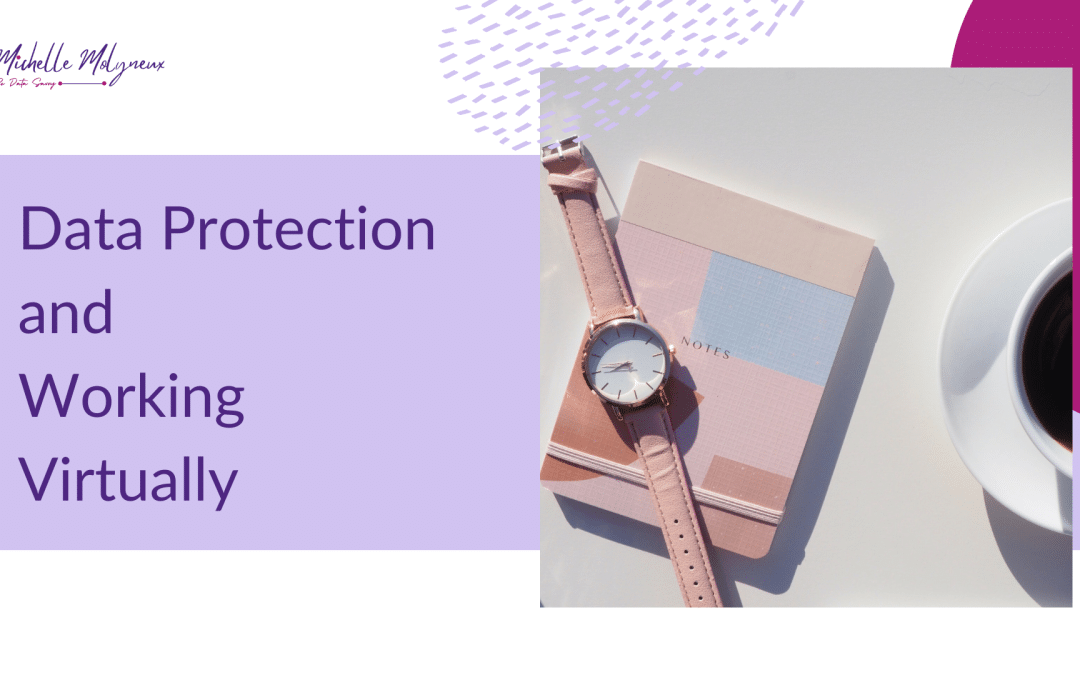In the last couple of years, how we work has changed immensely. We now want to work in a more hybrid way or work from home more often. Virtual working is in high demand, which means data protection and privacy need to be a high priority.
There are some things that organisations need to implement for the safety of the business and their clients.
Working from Home
As working from home becomes increasingly common, it is essential to ensure that proper data protection measures are in place. Team members must take steps to secure confidential and sensitive information. This will include using secure networks and passwords, encrypting data, and limiting access to work devices. That means work devices should only be used for work purposes by the appropriate person. A work-issued machine should not be shared with others in the house.
Businesses should also provide clear policies on data protection and train their employees on best practices. Regularly backing up data and conducting security audits can also help mitigate data breach risks while working remotely.
Shared workspaces
Co-working offices have become increasingly popular over recent years way to working virtually. They offer individuals and small businesses the opportunity to work from a shared workspace. However, with this trend comes unique challenges related to data protection. Co-working spaces often involve using common areas, such as shared printers and wifi networks. This can potentially expose sensitive information to unauthorised parties.
This may account for the results of a survey by Veritas Technologies which stated that 74% of companies experienced data breaches at co-working spaces.
We are not saying co-working spaces are unsafe and should not be used. They are a great place to work. But, it is essential when working in a co-working space to implement additional data protection measures, such as encrypted networks. The easiest way to do this is to use a VPN on your device.
In fact, with VPNs, I would use one whenever using an external wifi source to protect your data and access from others.
In addition, users of co-working spaces need to be conscious of the work they are working on and what can be seen by others. You are in a public area, and someone could look at your screen over your shoulder.
Additionally, co-working space users need to be diligent in protecting their data, such as using strong passwords and avoiding public wifi networks. With proper measures, co-working spaces can protect their users’ data.
Bring your own device
In today’s digital age, Bring Your Own Device (BYOD) policies are becoming increasingly common in workplaces, which can pose a challenge to data protection.
As team members use their personal devices, it cannot be easy to ensure that sensitive information is not compromised. To address this issue, organisations can implement security measures such as encryption, multi-factor authentication, and remote wiping capabilities to protect data on personal devices. It is also important for team members to receive training on data security and for clear guidelines to be set regarding using personal devices for work purposes. By taking these steps, organisations can better protect their sensitive information and reduce the risk of data breaches.
There is a theme running through each of these sections: cyber security, which is not limited to the above.
Cyber security
As more people are working remotely, cyber security has become increasingly important. Working virtually can leave individuals vulnerable to cyber attacks. As a result, it is important to have secure connections and to use strong passwords to protect sensitive information.
The first thing that needs to be checked/verified is that the set password for the router has been amended, as has the login to the router. They may look like a unique password on the base of the equipment, but they still need changing.
Additionally, when working from home, caution should be given when clicking on links or downloading attachments from unfamiliar sources. Training should be sourced and provided to employees. If you work with freelancers or sub-contractors that access your systems, you must ensure they have completed training.
Where possible, resources and lessons learned should be shared to ensure their remote employees are aware of potential threats and are taking the necessary precautions to keep company information safe.
If you have any questions about supporting your business and team to work safely and compliantly virtually, or if you would like support applying for Cyber Essentials, why not book a free 30-minute call to see what we can do?

